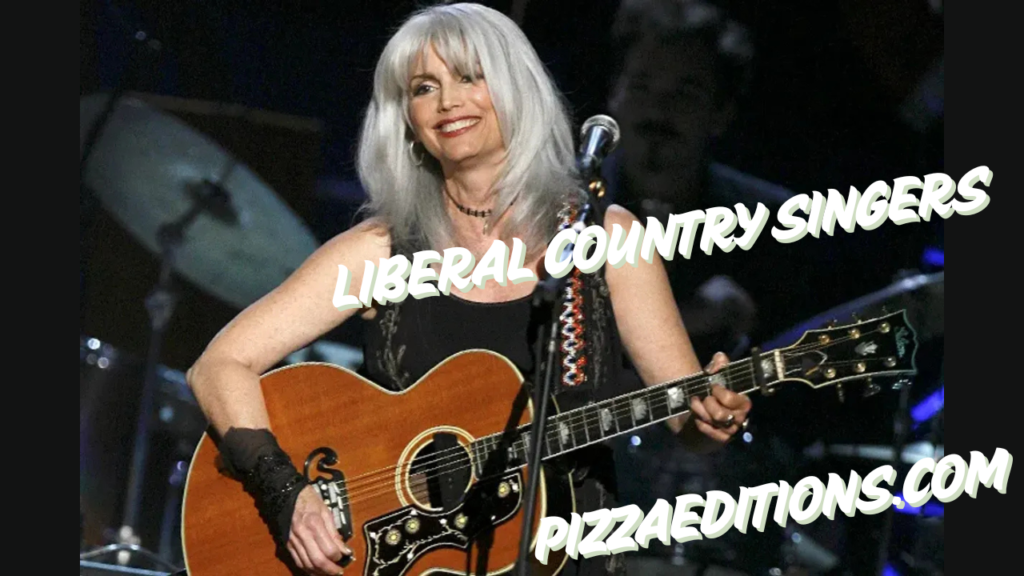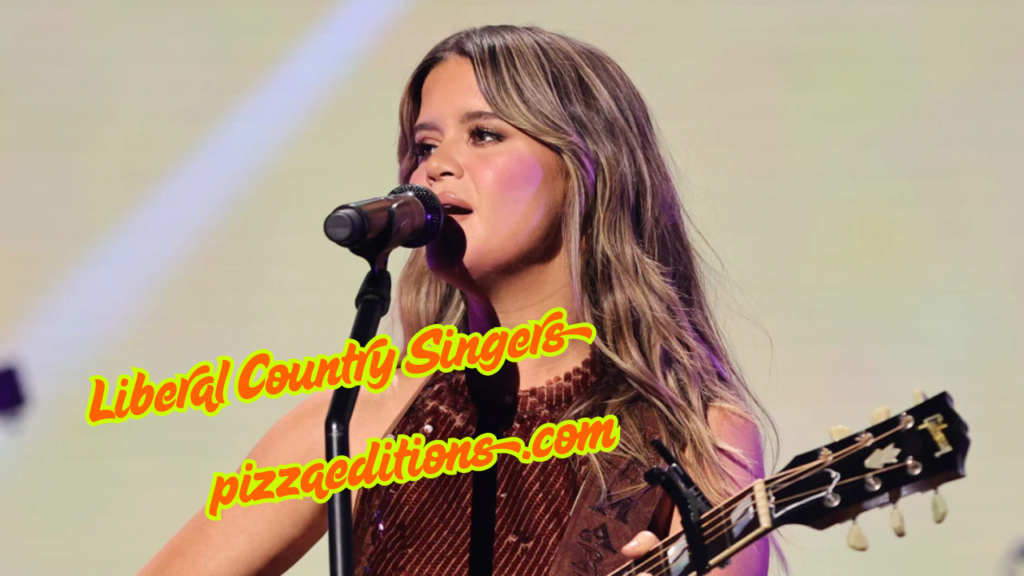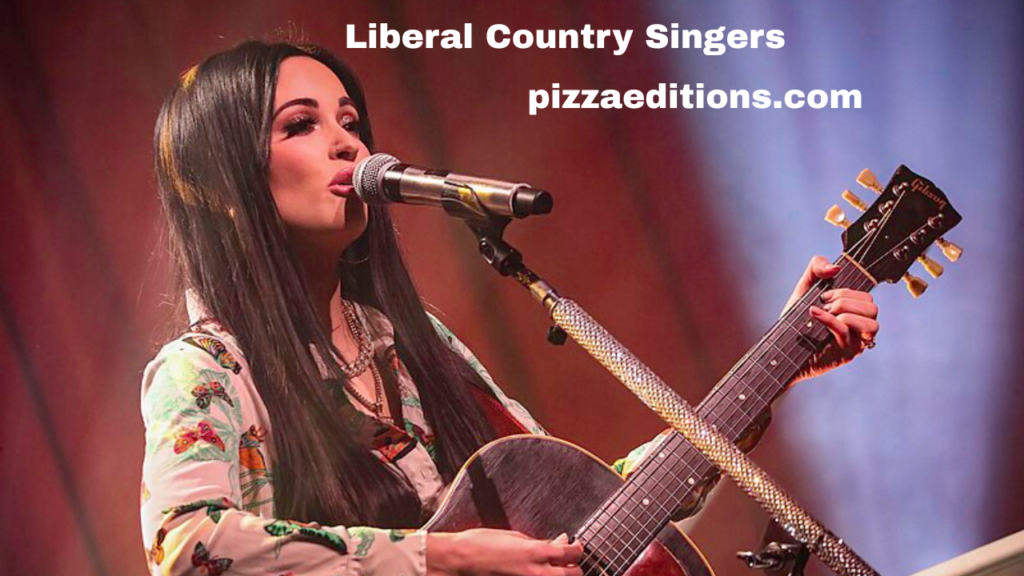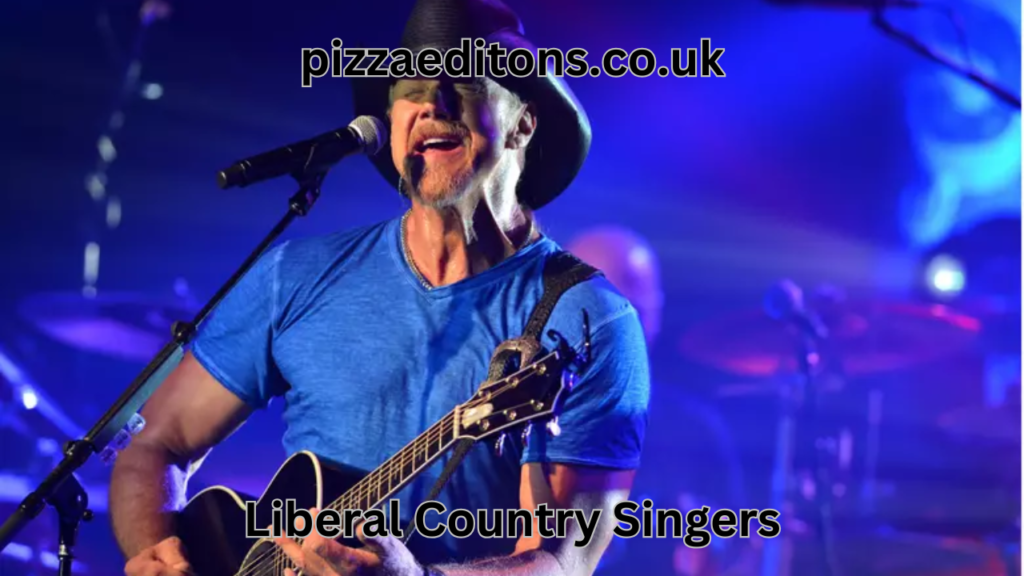Country music, which embodies rural values, patriotism, tradition, and a strong bond with church, family, and the heartland, has long been seen as the voice of conservative America. But more and more artists are challenging that stereotype. This is more than just a headline; it’s a cultural shift: liberal country singers: shattering preconceptions at the core of country music,?? (the title makes sense). In a genre that many believed was resistant to such transformation, progressive voices are emerging from inside Nashville’s boundaries, paving the way for social reform, inclusion, and political variety.
The Conservative Image of Country Music

Country music has traditionally gravitated toward a very certain image. The charts have been dominated by lyrics about God, firearms, American patriotism, and the basic, small-town way of life. It has long been believed that conservative values are supported by country music listeners and, consequently, by its performers. The political endorsements of well-known country music artists, many of whom publicly back conservative causes or Republican candidates, have frequently mirrored this.
As a result, many liberal listeners and artists felt alienated from the genre, assuming there was little space for progressive messages. But beneath the surface, a quiet rebellion was brewing. Liberal country singers were already beginning to question, challenge, and reshape the genre from within.
The Rise of Liberal Voices in Country Music

Today, more and more artists are stepping into the spotlight with bold liberal stances, openly supporting LGBTQ+ rights, racial justice, gender equality, and environmental activism — all while staying true to their country roots. These liberal country singers: breaking stereotypes in the heart of country music, ??, (in title make a sense) have become symbols of a changing tide in the industry.
Artists like Kacey Musgraves, Maren Morris, Brandi Carlile, and Jason Isbell have emerged as key players in this movement. Their music still carries the familiar twang and storytelling charm of traditional country but is layered with progressive ideas that challenge the norms of their genre.
Kacey Musgraves: A Glittering Rebel with a Message

Kacey Musgraves has often been referred to as the poster child for liberal-minded country music. From her Grammy-winning album Golden Hour to her earlier work like Same Trailer Different Park, Musgraves has consistently infused her music with progressive ideals.
Her breakout hit “Follow Your Arrow” encouraged listeners to love who they love, smoke what they want, and live authentically — a message not often found in mainstream country radio. With lines like “kiss lots of boys, or kiss lots of girls if that’s something you’re into,” Musgraves broke ground with LGBTQ+ inclusivity in country music. Her elegant defiance has made her a hero to many and a refreshing force within the genre.
Maren Morris: Speaking Truth to Power in a Conservative Arena
Another standout among liberal country singers: breaking stereotypes in the heart of country music, ??, (in title make a sense) is Maren Morris. She’s become one of Nashville’s most outspoken advocates for progressive values. Morris has not shied away from calling out racism, misogyny, and hypocrisy in the industry and beyond.
She formally departed the country music business in 2023, blaming the poisonous political and cultural atmosphere there, especially in the wake of the racial inclusion and LGBTQ+ rights scandals. Morris made a strong message while taking a back seat, though, not just about the situation of the business today but also about how important it is to question the established quo. A new generation of country music musicians and fans have been inspired by her audacity and view her as a symbol of change.
Jason Isbell: The Blue Collar Liberal with a Guitar
Jason Isbell’s songwriting is raw, poetic, and unapologetically honest. A former member of the Drive-By Truckers and a celebrated solo artist, Isbell uses his music and public platform to address topics like addiction, mental health, gun control, and working-class struggles — all from a distinctly progressive point of view.
Isbell’s Southern heritage lends legitimacy to his message in places where liberal viewpoints could otherwise be met with resistance. He is evidence that you can seek equality and development while still loving your home and upholding your traditions. Songs like “White Man’s World” and “What’ve I Done to Help” reveal Isbell’s reflections on complicity, privilege, and racism.
Brandi Carlile: A Queer Voice in Country’s Fold
While Brandi Carlile is often associated with Americana and folk, her influence and connections to the country genre make her a significant figure in this movement. As an openly gay artist, Carlile has faced significant barriers — yet she’s achieved critical acclaim, Grammy wins, and collaborations with country legends like Tanya Tucker.
Her existence and success are defiant statements in and of themselves. Carlile has become a fierce advocate for LGBTQ+ rights, women’s rights, and marginalized communities, making her a powerful example of liberal country singers: breaking stereotypes in the heart of country music, ??, (in title make a sense).
Fans Are Changing, Too
It’s not just the artists — country music’s audience is evolving. While the genre’s core fan base may still lean conservative, a growing segment of listeners identify as liberal, moderate, or simply more open-minded than the caricature of a stereotypical country fan.
Social media has played a significant role in connecting like-minded fans, creating communities where progressive values and country music can coexist. Younger fans, especially Gen Z, are demanding more authenticity and social responsibility from their artists — and they’re willing to walk away from those who fail to deliver.
Facing Backlash and Staying Brave
Of course, the journey isn’t without resistance. Liberal country singers often face backlash from conservative fans, media outlets, and even within their own industry. Radio stations may be hesitant to play their songs. Online trolls and political pundits attack their character. Some lose fans. Some are blacklisted.
But these artists continue to speak out, proving that their commitment to progress is not just a marketing move — it’s a deeply held belief. In many cases, their bravery has paved the way for others, creating a slow but undeniable transformation in the industry.
A Genre at a Crossroads
Liberal country singers: breaking stereotypes in the heart of country music, ??, (in title make a sense) represent more than a musical trend. They symbolize a cultural reckoning in one of America’s most traditional art forms. Their presence is forcing the country music industry to examine its own values and ask important questions: Who gets to be a country artist? What messages are worth sharing? Can patriotism and progress coexist?
As the genre continues to expand and diversify, these liberal voices are not just participating — they’re leading. They’re proving that country music can be more than one thing at once. It can be both Southern and progressive, twangy and inclusive, nostalgic and forward-thinking.
Conclusion: The New Sound of Country
In an age where the lines between red and blue seem more defined than ever, country music — once considered a red-state genre — is becoming an unlikely stage for blue-state ideals. Artists like Kacey Musgraves, Maren Morris, Jason Isbell, and Brandi Carlile are rewriting the rules, creating space for conversations about love, identity, equality, and justice.
These liberal country singers: breaking stereotypes in the heart of country music, ??, (in title make a sense) aren’t just bending the genre — they’re broadening it. And in doing so, they’re making country music something it’s always been at its core: a reflection of real people, living real lives, telling real stories.
Also Read : play Puwipghooz8.9: A Comprehensive Guide to Playing and Excelling
